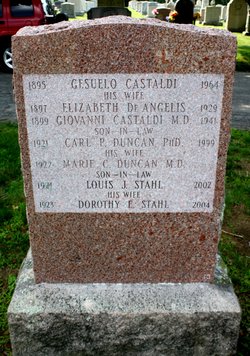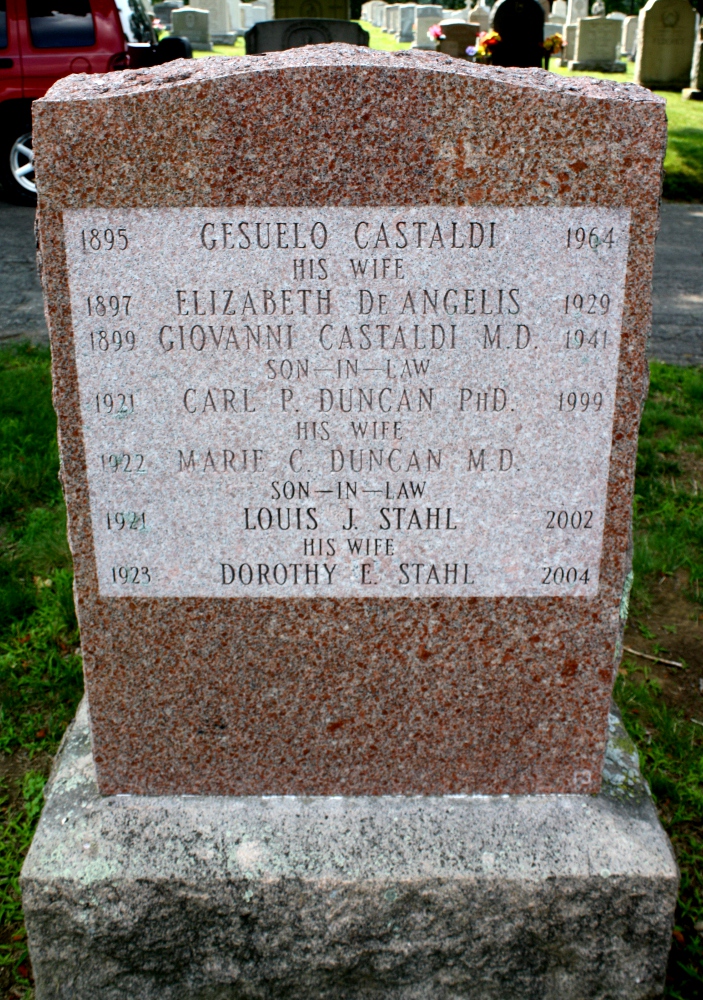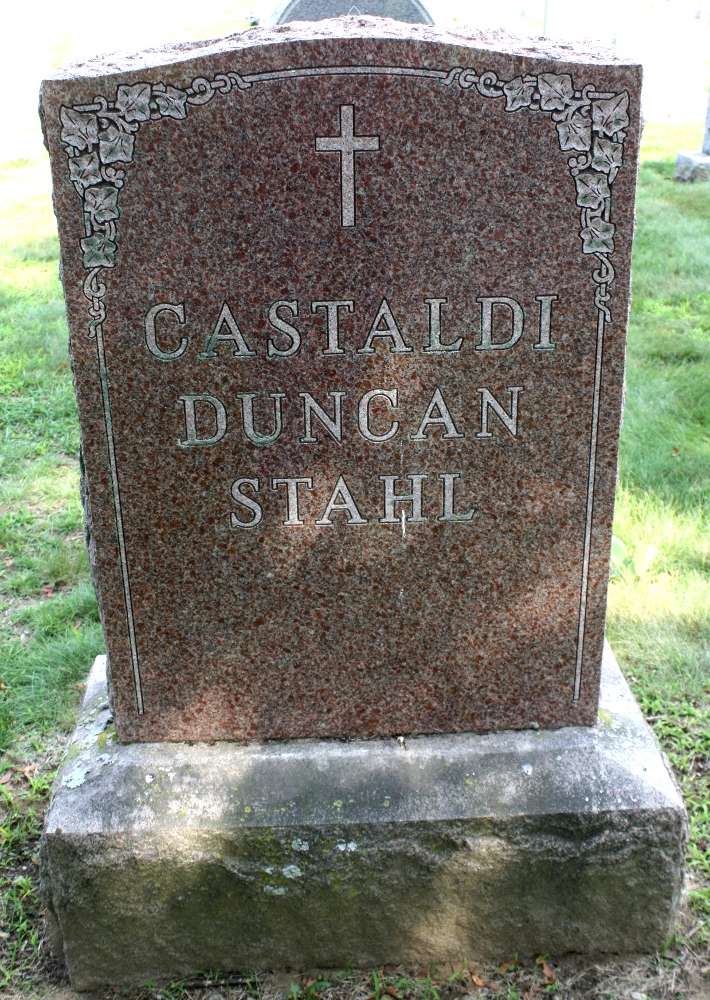Carl Duncan was a renowned psychology professor whose research on electroshock and the physiology of memory still is studied today.
But Mr. Duncan's passions weren't limited to psychology, which he taught for 40 years at Northwestern University. "Dunc," as he was known to friends, was well-educated in a wide range of subjects.
"He knew a lot about a lot of things," said Albert Erlebacher, an associate professor of psychology at Northwestern and longtime friend. "He was widely read in everything_not just psychology. He read Civil War stuff, he read World War II stuff. He was just a voracious reader of just about everything."
Mr. Duncan died Monday in an accidental fall at his home in Libertyville. He was 77.
A native of Presque Isle, Maine, Mr. Duncan earned his undergraduate degree at the University of Maine. After serving in the U.S. Army at a Boston induction center during World War II, he earned a doctorate in 1947 from Brown University, in Providence, R.I. Brown was also where he met his wife of 51 years, Dr. Marie Duncan, now a retired psychiatrist.
Mr. Duncan joined the Northwestern faculty soon after and stayed for 40 years, until 1987.
He was a member of the Society of Experimental Psychologists. He also was a fellow of the American Psychological Association and a member of the American Psychological Society and the Midwestern Psychological Association, of which he was president from 1965 to 1966.
At Northwestern, Mr. Duncan directed the department's honors program for 35 years and served as director for graduate studies.
Mr. Duncan also served as book review editor for the American Journal of Psychology and received a fellowship from the National Science Foundation.
Erlebacher, who studied under Mr. Duncan and later became his colleague, called Mr. Duncan "a wonderful lecturer" with a down-to-earth nature and booming voice. Mr. Duncan "was one of these people that if he didn't have a book in his hand, he read a catalog," he said.
Marie Duncan said her husband kept a list of the books he had read because "he would order books that had interested him and sometimes he would find that he had already read them."
Mr. Duncan was generous with his books, often sending them to people he thought would enjoy them.
No formal services are planned, but Marie Duncan said she has talked to Northwestern faculty members about planting a tree in her husband's memory.
In addition to his wife, survivors include two brothers, Jack Duncan and Gerald Duncan, and three nieces.
Chicago Sun-Times (IL) - Sunday, August 15, 1999
Carl Duncan was a renowned psychology professor whose research on electroshock and the physiology of memory still is studied today.
But Mr. Duncan's passions weren't limited to psychology, which he taught for 40 years at Northwestern University. "Dunc," as he was known to friends, was well-educated in a wide range of subjects.
"He knew a lot about a lot of things," said Albert Erlebacher, an associate professor of psychology at Northwestern and longtime friend. "He was widely read in everything_not just psychology. He read Civil War stuff, he read World War II stuff. He was just a voracious reader of just about everything."
Mr. Duncan died Monday in an accidental fall at his home in Libertyville. He was 77.
A native of Presque Isle, Maine, Mr. Duncan earned his undergraduate degree at the University of Maine. After serving in the U.S. Army at a Boston induction center during World War II, he earned a doctorate in 1947 from Brown University, in Providence, R.I. Brown was also where he met his wife of 51 years, Dr. Marie Duncan, now a retired psychiatrist.
Mr. Duncan joined the Northwestern faculty soon after and stayed for 40 years, until 1987.
He was a member of the Society of Experimental Psychologists. He also was a fellow of the American Psychological Association and a member of the American Psychological Society and the Midwestern Psychological Association, of which he was president from 1965 to 1966.
At Northwestern, Mr. Duncan directed the department's honors program for 35 years and served as director for graduate studies.
Mr. Duncan also served as book review editor for the American Journal of Psychology and received a fellowship from the National Science Foundation.
Erlebacher, who studied under Mr. Duncan and later became his colleague, called Mr. Duncan "a wonderful lecturer" with a down-to-earth nature and booming voice. Mr. Duncan "was one of these people that if he didn't have a book in his hand, he read a catalog," he said.
Marie Duncan said her husband kept a list of the books he had read because "he would order books that had interested him and sometimes he would find that he had already read them."
Mr. Duncan was generous with his books, often sending them to people he thought would enjoy them.
No formal services are planned, but Marie Duncan said she has talked to Northwestern faculty members about planting a tree in her husband's memory.
In addition to his wife, survivors include two brothers, Jack Duncan and Gerald Duncan, and three nieces.
Chicago Sun-Times (IL) - Sunday, August 15, 1999
Family Members
Sponsored by Ancestry
Advertisement
Advertisement








